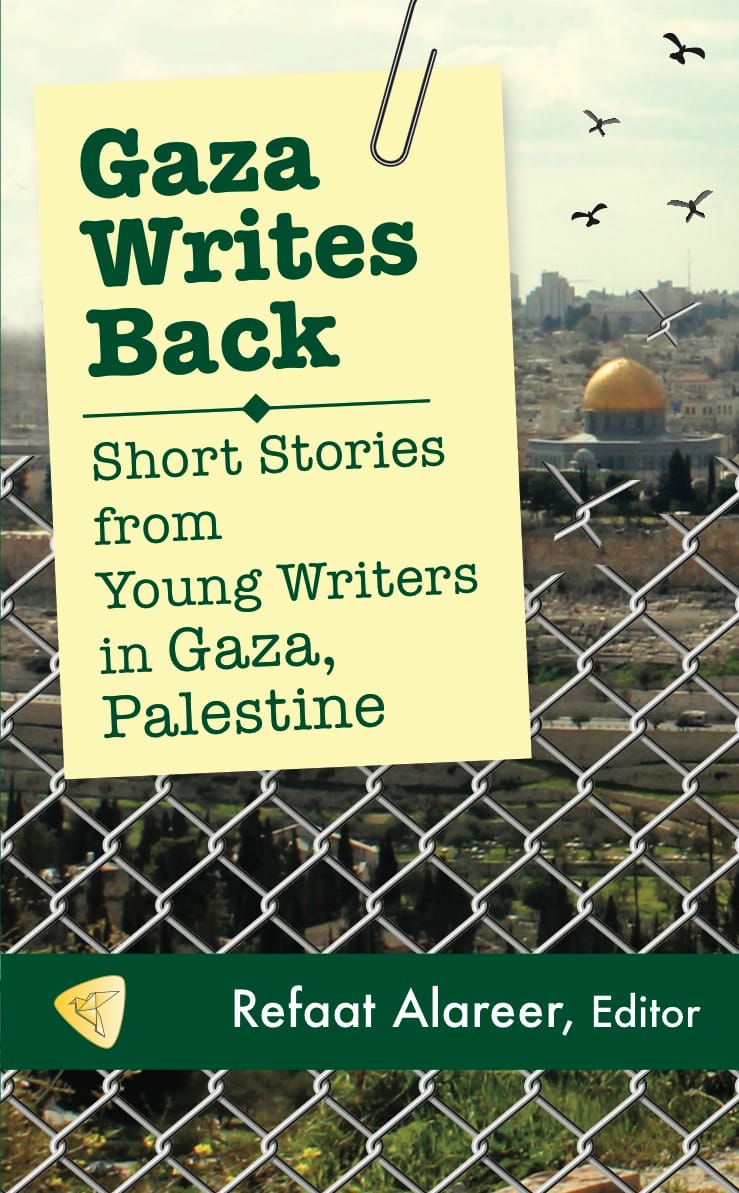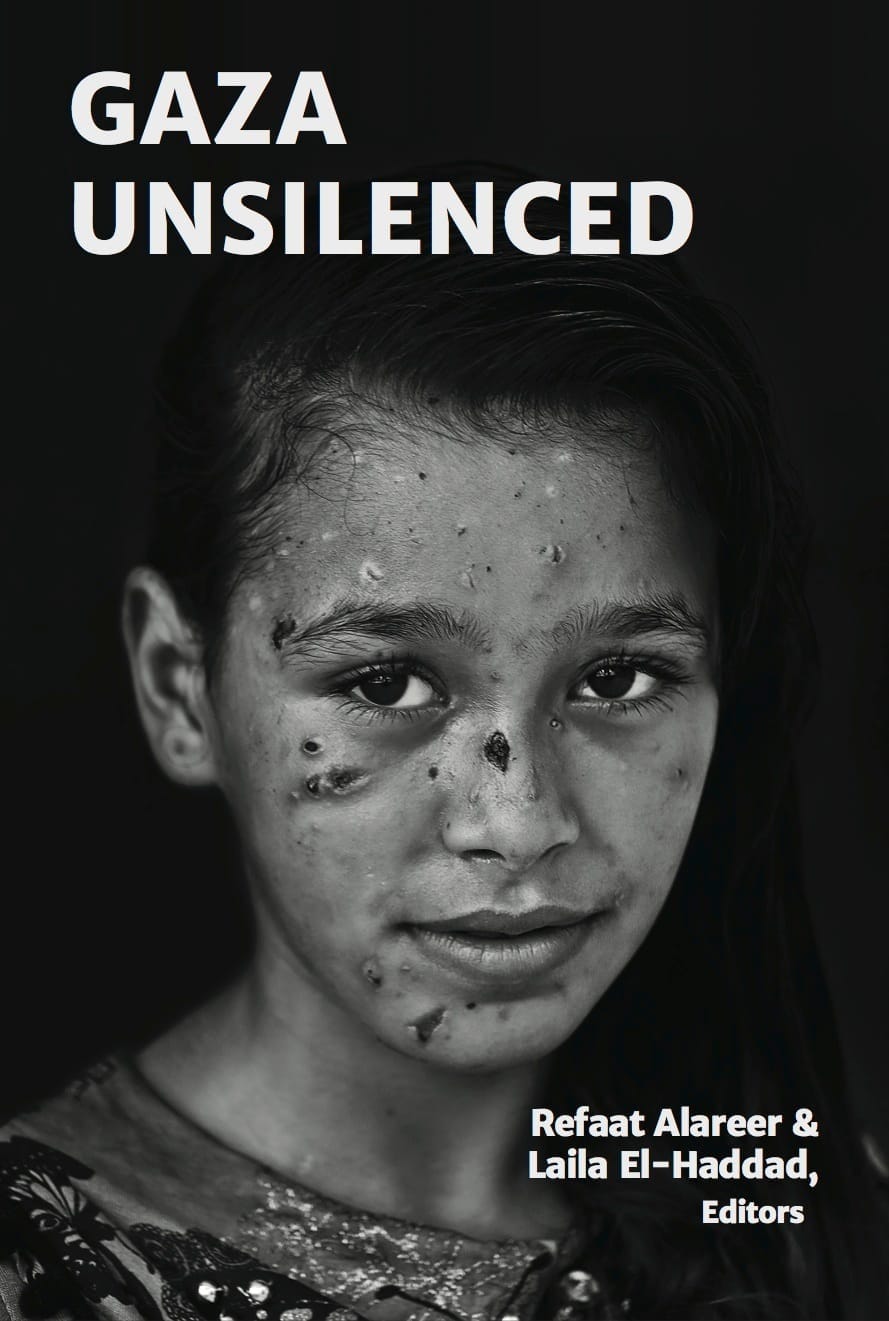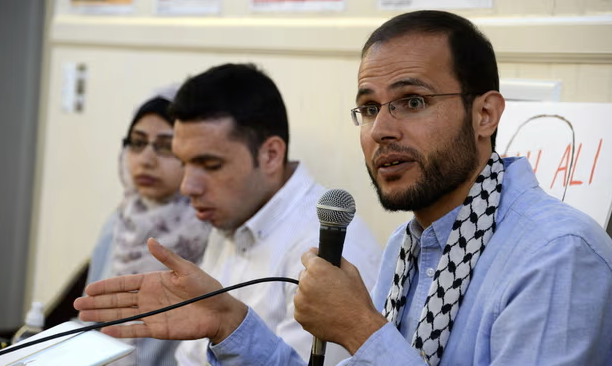A native of Gaza City's Shijaiyah neighbourhood, Refaat Alareer was a prominent Palestinian writer, poet and professor. He worked closely with emerging Palestinian writers to help them develop their creative writing skills.
Alareer authored and edited several books including Light in Gaza: Writings Born of Fire, Gaza Writes Back, a collection of short stories from young writers in Palestine. One of his significant works also includes Gaza Unsilenced. The book is a poignant testament to the resilience and dignity of Gaza Palestinians, who, in the wake of the 2014 Israeli attacks have documented their pain, losses and dislocations. The book, which features original contributions from the editors as well as essays, reportage, images and poetry from Gaza serves as a powerful and unyielding voice against the injustices faced by the community.



Books written by Refaat Alareer. Image courtesy of Goodreads.
Bringing attention to the United Nations Sustainable Development Goal for Peace, Justice and Strong Institutions, the author, through his work and activism, aimed to amplify the voices of Palestinians and shed light on their experiences, striving for peace and justice in Palestine. Alareer's work often focused on the lived realities of Palestinians living under occupation and siege, shedding light on their struggles, resilience and humanity.
On Dec. 7, 2023, Alareer was tragically killed in an Israeli air strike that flattened his sister’s apartment, also taking the lives of his brother Salah and his son along with his sister Asmaa and her three young children.
If I must die, you must live, to tell my story, to sell my things, to buy a piece of cloth and some strings. Make it white with a long tail, so that a child, somewhere in Gaza, while looking heaven in the eye, awaiting his dad who left in a blaze and bid no one farewell, not even to his flesh, not even to himself, sees the kite, my kite you made, flying up above, and thinks for a moment an angel is there, bringing back love. If I must die, let it bring hope. Let it be a tale.” This was the last poem shared by Alareer.
Alareer was a professor of English literature at the Islamic University in Gaza and was also respected as an intellectual integral to Gaza’s cultural scene. However, the author was categorized as a prominent figure beyond being a teacher and a professor.
“I like storytelling. I learned this from my mother, my parents, and my grandparents. The moment I was told to tell my story for the book, something clicked. A couple of stories rushed into my mind about my earliest memories, and how every single memory we have is tarnished by the occupation. Everything is directly impacted negatively by the occupation; we are ruled by a military occupation that wants to make our lives horrible at every turn,” stated Alareer in an interview with AFSC.

Recognizing the challenges of communication faced in Gaza due to decades of occupation, redevelopment and isolation, Dr. Alareer saw the teaching and learning of English as a means to transcend the physical, intellectual, academic and cultural barriers imposed by the occupation. He viewed English not just as a language skill but as a form of resistance and defiance against these obstacles. Through his teaching and mentorship, Alareer fostered a spirit of intellectual curiosity and social consciousness, empowering young Palestinians to challenge hegemonic narratives and envision a future grounded in equality and freedom.
Whether through public speaking engagements, media interviews, or writing op-eds, Alareer fearlessly spoke truth to power, shining a light on the injustices faced by Palestinians and tirelessly working towards a just and peaceful resolution to the conflict. His legacy serves as a reminder of the importance of solidarity and collective action in the struggle for human rights and dignity.
